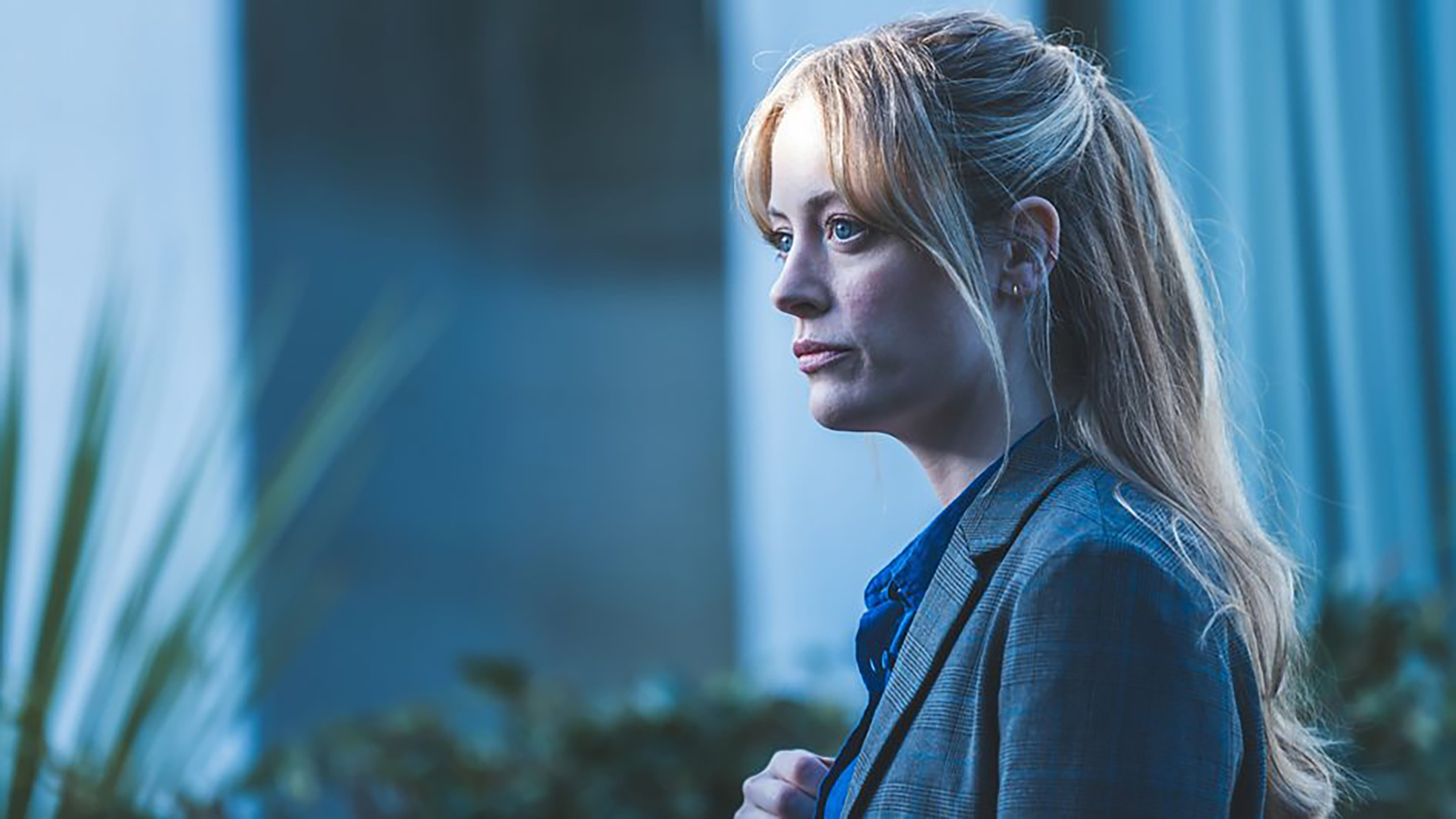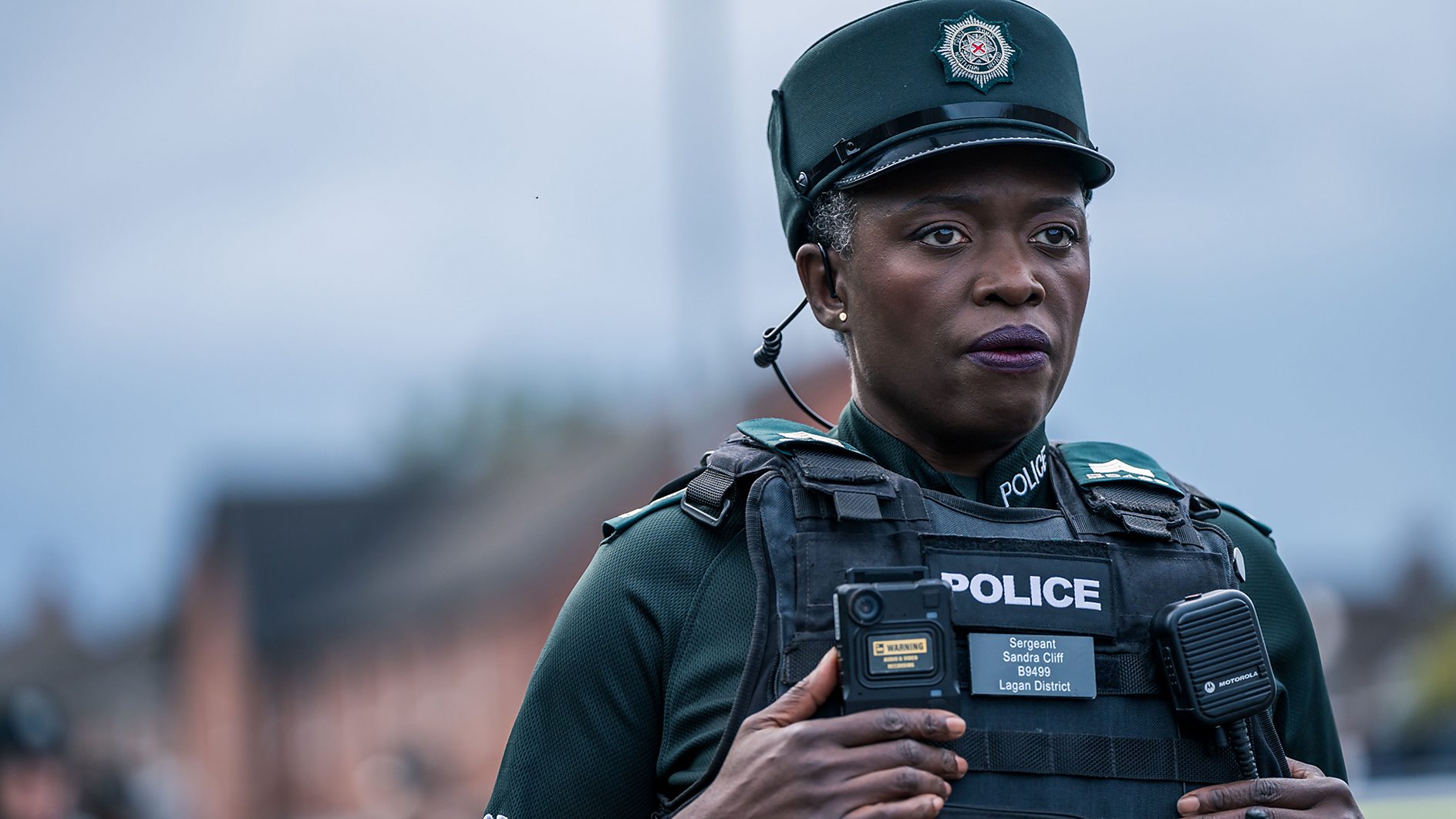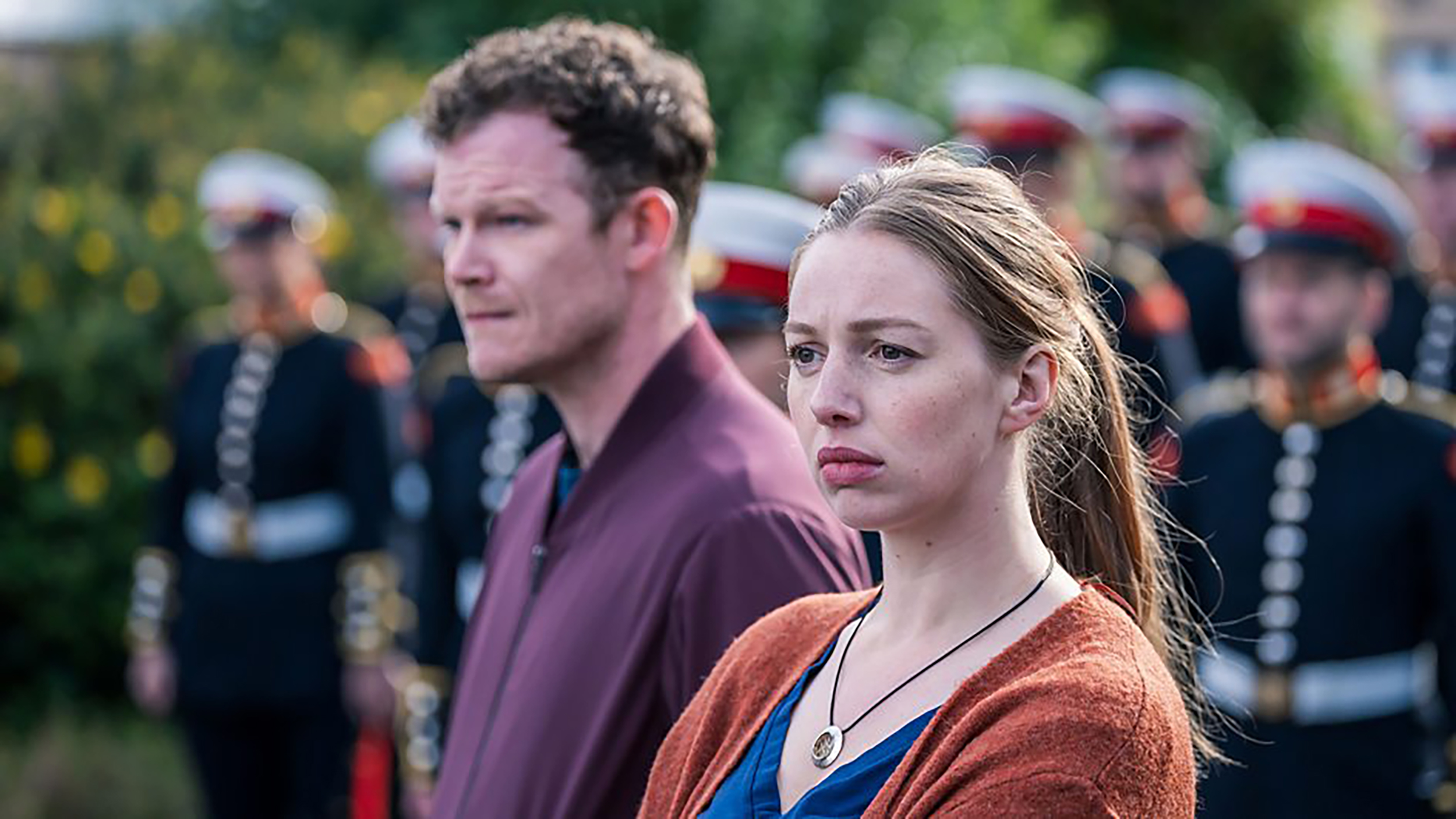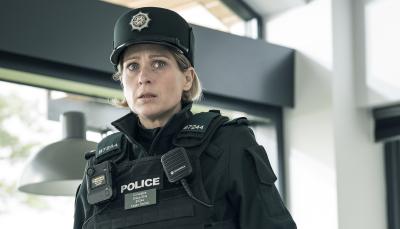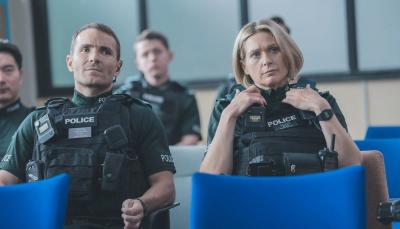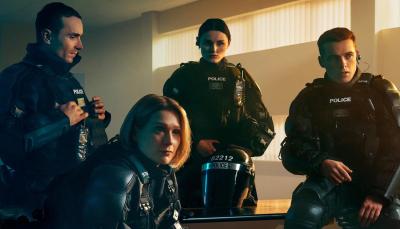'Blue Lights' Creators On Viewing The Troubles from All Sides & Season 3 Ideas
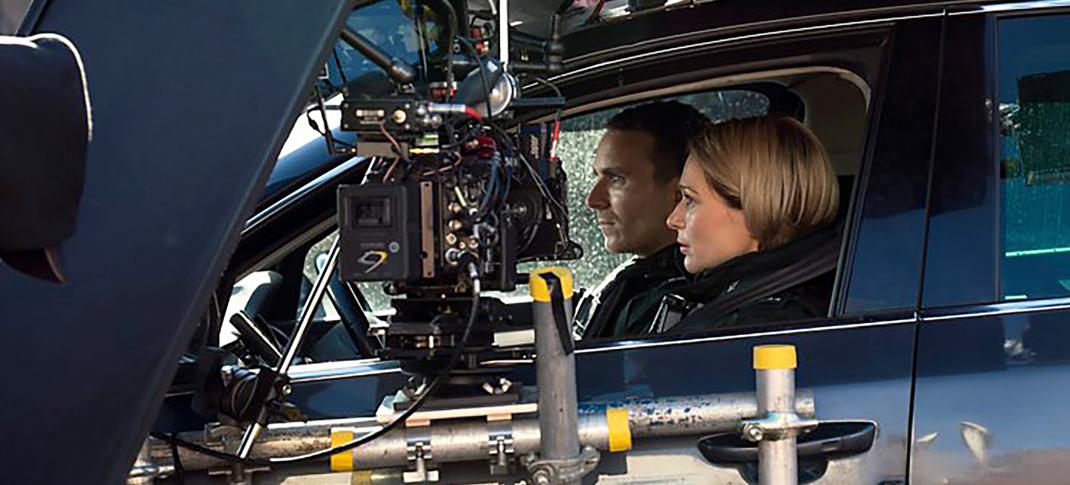
Behind the scenes of the filming of Blue Lights
BBC/Gallagher Films/Two Cities Television
In its second season, the engrossing cop shop/found family drama Blue Lights has continued to delve deeply and sensitively into daily life among the officers of a Belfast police precinct. This season’s overarching plot directly addresses the continuing echoes of The Troubles, the sectarian civil war that tore through Northern Ireland for decades before the 1998 Good Friday Agreement formally brought peace to the region.
In advance of the second season’s final episodes arriving on BritBox, Blue Lights co-creators and writers Declan Lawn and Adam Patterson sat down with Telly Visions to talk about how their work as investigative journalists provided a natural pivot point to working in scripted drama, the freedom fiction provides to think through real-world issues, and what the direction of Seasons 3 and 4 may take.
Lawn and Patterson met in 1999 through their work on the London-based news program Panorama for the BBC, Patterson behind the camera and Lawn on screen. Before working on Panorama, Patterson’s background was in still photography, “Looking at social justice in the UK, Ireland, and traveling the world.” Like Lawn, he draws on a deep well of personal and national history to plumb the experiences of humans living and working in extreme environments, concluding that “at some stage, if you’re going to tell an honest story about where you’re from, you need to start looking at” historical trauma and its personal ramifications.
The two have an easy, often playful rapport: At one point, Patterson interrupted Lawn to compliment his on-camera looks as “very, very handsome!” Lawn, clearly a veteran of his creative partner’s cheeky wit, narrated their origin story smoothly. As news documentarians, “you're there to hold power to account,” but the form’s established structure “captures the facts very well” and “didn’t always capture the feelings and the emotion of the big issues.” Patterson concurred, describing the presentation of news as de-prioritizing the emotional experiences of interview subjects, while “with character-driven drama, you can spend hours and hours” with your subject matter. Ultimately, “people actually engage with it more, and you're reaching a much different audience than we ever reached in journalism.”
Patterson describes the Blue Lights project as a way for him and Lawn to “look at who we are as people, what our places are, and what Northern Ireland is doing right now, where it’s trying to go.” Lawn continues, describing the latitude to integrate the emotions and experiences of “victims of violence from the Troubles from all sides” as the core of what makes Blue Lights so dramatically effective.
This season’s penultimate episodes include a riveting, intense scene between Nicola Robinson (Andrea Irvine), a District Commander in the Police Service of Northern Ireland (PSNI), and her daughter, Jen (Hannah McLean), who left the PSNI at the end of Season 1 to pursue a legal career. A case Jen filed on behalf of Happy Kelly, a man whose entire life has been affected by the loss of his brother and father in a chip shop bombing in the 1970s, and it falls to Nicola, a veteran of Special Branch during the Troubles, to inform Jen that the case is going nowhere – at least, not publicly. The open airing of decisions taken by the PSNI in its former role as the Royal Ulster Constabulary (RUC) would unearth facts too controversial to revisit.
The impassioned argument between mother and daughter, pragmatist and idealist, draws directly on comments from sources Lawn worked with as a journalist. He gave Jen opinions that he “heard from the minds of victims and survivors and activists and truth campaigners and lawyers,” the fervent, well-argued perspective that bringing all of the events of that era to light would be the best way for Northern Ireland to reckon with the past. To Nicola, he gave the views of “former police officers and people in the security establishment” that “we stopped the civil war – that’s all you need to know, and we had to do some difficult things” to accomplish that goal.
Viewers should not expect a clear-cut winner of that argument, though. While Blue Lights maintains a strong point of view rooted in the notion that everyone in Northern Ireland is in this together — living a post-conflict society where the memories of that conflict run deep, and with imperfect clarity — and neither lets Jen nor Nicola win the argument nor holds one up as the loser. Reflecting on the scene, Lawn noted that “the whole argument is almost a distillation of all of the ideas that are coming up in our society at the moment,” and having it take place between a mother and daughter who love and respect one another adds a degree of heft and complexity to the lack of resolution between them. Happy will receive a substantial financial settlement for his loss, while a former high-ranking officer in the Special Branch will have to contend with his moral injury privately. No one is fully satisfied, and no one is left entirely wanting.
Looking ahead to Seasons 3 and 4, both Lawn and Patterson steered clear of specific plot developments, instead reaffirming their commitment to the series’ vision, which Lawn described as “to chart the growth of these characters over the first few years as officers because what we have seen in the real officers that we deal with is that the job demands a great deal from you.” Dramatizing the concept of both the rewards and the toll that this specific type of public service can take on those who do it requires a long-term, consistent focus on their characters and “how people change, for the better and for the worse.” No big deal, just an exploration of the fundamental human condition in a very particular place, distilled into six tautly paced hours each season.
The brief Lawn and Patterson have assigned themselves is nestled firmly within an ongoing re-examination of The Troubles throughout Northern Ireland, in fiction and in fact. Blue Lights takes its place among series like Derry Girls, Anna Burns’ Man Booker Prize-winning novel Milkman, and Patrick Radden Keefe’s award-winning investigative work Say Nothing. Thanks to the broadly improved political stability of the region, more people have the psychological breathing room to revisit, reflect on, and process the traumas of that era.
Lawn shared his hope that one day soon, TV creators and filmmakers will be writing stories set in places like Belfast and Derry, Enniskillen, and Omagh that aren’t “suffused with the ghosts of The Troubles.” What would that look like? Lawn imagines “some young writer a generation after us coming along and writing a Curb Your Enthusiasm that has nothing to do with The Troubles.”
Seasons 1 and 2 of Blue Lights are streaming in full on BritBox. Season 3 is expected to be released in 2025, followed by Season 4 in 2026.

